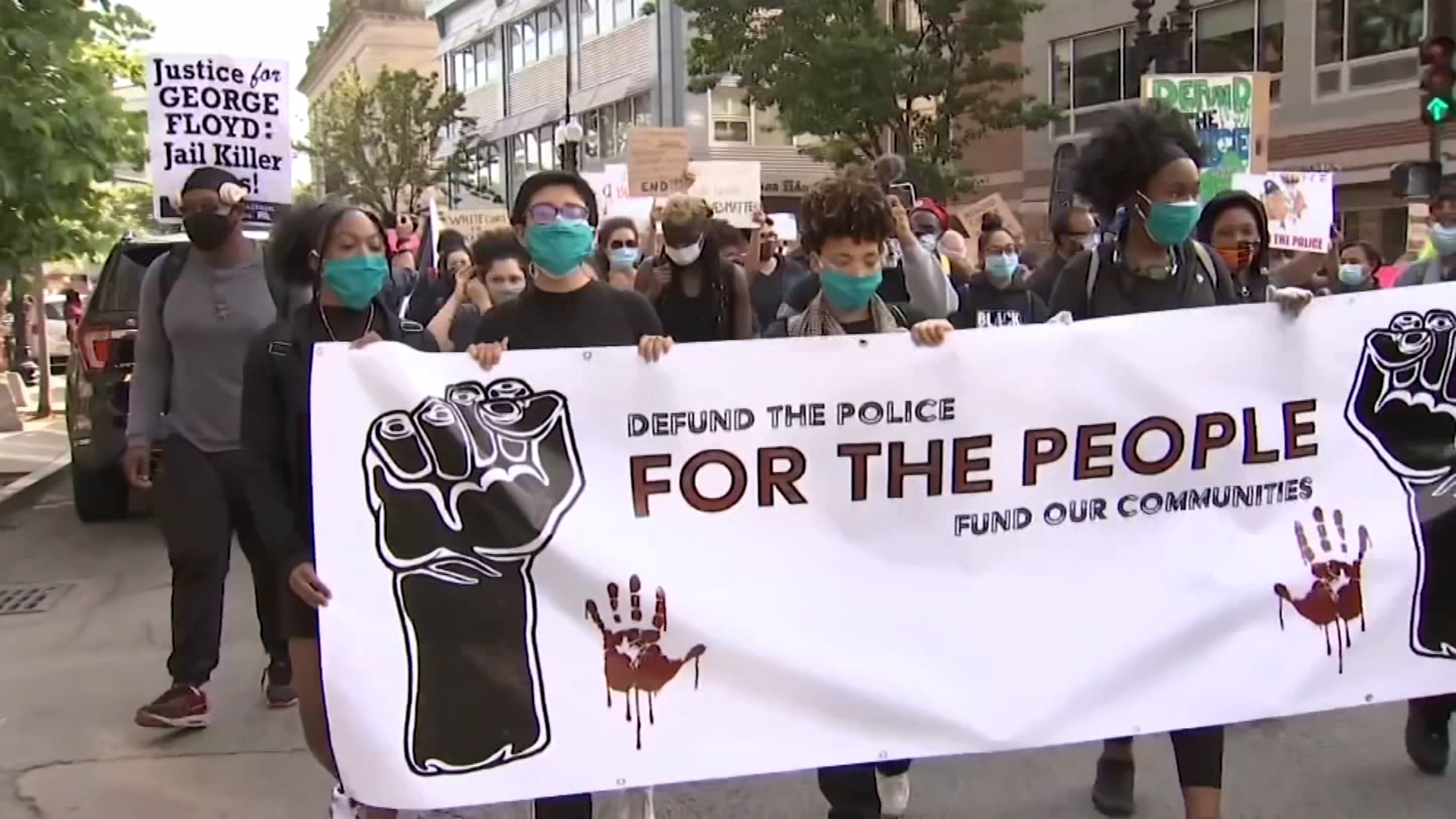
A Truro Democrat on Friday pushed members of a new commission studying qualified immunity to reach out and listen to a diverse set of voices, saying the group's primarily white makeup needs to recognize the topic they are studying disproportionately impacts people of color.
"I do really want to note the composition of this commission, at least in the tiles that I'm seeing, this is a very white commission. I'm surprised by that," Sen. Julian Cyr said at the group's meeting. "I'm gonna speak as a white person on this commission, I want to make sure that ... we're very diligent about hearing from voices of color, who we know have disproportionately been affected and have not been at the equal hand of justice."
The commission was created under the state's policing reform law that went into effect in December. Lawmakers decided to tie the court-made immunity doctrine that shields police and other public employees from civil lawsuits in state court to the certification and decertification process managed by the new Massachusetts Peace Officers Standards and Training Commission.
Get New England news, weather forecasts and entertainment stories to your inbox. Sign up for NECN newsletters.
Rep. Michael Day, who leads the commission alongside Sen. Jamie Eldridge, said members can look to include a diverse range of voices when selecting who will offer presentations to the commission.
"I do want to underscore that we're going to be very deliberate and conscious and making sure that every voice is heard by the commission," Day said. "I think some of that can come out in our presentations that we choose to request. But certainly, the intent here is to be fully transparent and welcoming to the public for their feedback and thoughts."
By any measure, qualified immunity is a difficult and complex topic to understand unless years are spent studying the subject. To that extent, commissioners decided to invite a legal scholar or expert to their next meeting at the end of May to present on the origins of the doctrine and discuss how it evolved over the years.
And as far as legislative commissions are concerned, this one has a tight turnaround with recommendations due back to the House and Senate on or before Sept. 30. Day, who also co-chairs the Judiciary Committee, presented a rough outline of discussion topics.
Starting with a basic understanding of qualified immunity, Day also suggested the group look at present interpretations by courts in the state, changes to the doctrine under the new police reform law, legal and policy rationale for qualified immunity, and impacts on administration of justice.
"They're just kind of roughed out topics that I thought would serve as a decent starting point for us here in the commission to talk about how we want to tackle this charge, what kind of presentations we think would be worthwhile, and what documents or other information we think would be essential to us to help create the report," the Stoneham Democrat said at the outset of the group's inaugural meeting.
The 15-member group, which is slated to meet next on May 28 at 10 a.m., is made up of appointees from Gov. Charlie Baker, House Speaker Ronald Mariano, Senate President Karen Spilka, the minority leaders in each branch, ACLU Massachusetts, Mass. Municipal Association, NAACP New England, and the Mass. Bar Association.
Over the summer, when the Senate debated police reform legislation, members went back and forth on qualified immunity for hours.
Citing a need to act quickly, some senators like Sen. Cindy Friedman argued that the state needed to close loopholes associated with qualified immunity that disproportionately affected people of color. Others, like Sen. John Velis, suggested that legislators needed to study the complex doctrine more thoroughly.
At the end of the process, which included nearly four months of closed door negotiations, the law created the commission to study qualified immunity and tied the doctrine to the licensing procedure for law enforcement officials and revokes it if an officer is decertified.
In an effort to better understand the topic, Sen. Cynthia Creem said the commission should look at how other states are dealing with qualified immunity. For example, a Colorado law signed in June 2020 removed protections provided by qualified immunity.
"It may be worthwhile to look and see what other states might have done on this. It may be that they're starting to look at qualified immunity a lot differently now than they did before," Creem said.



